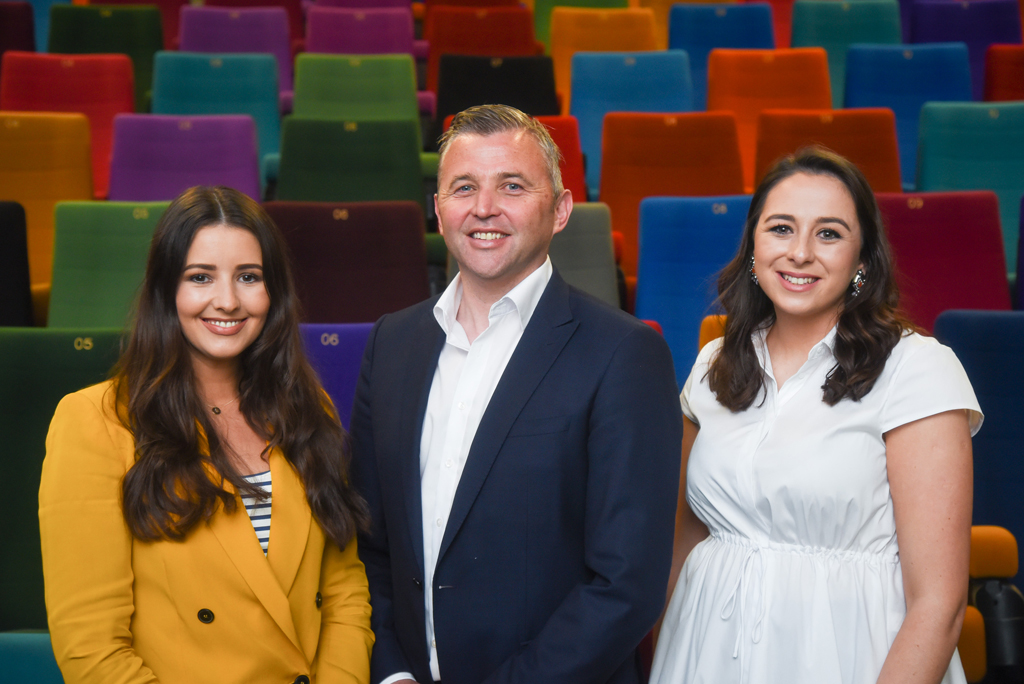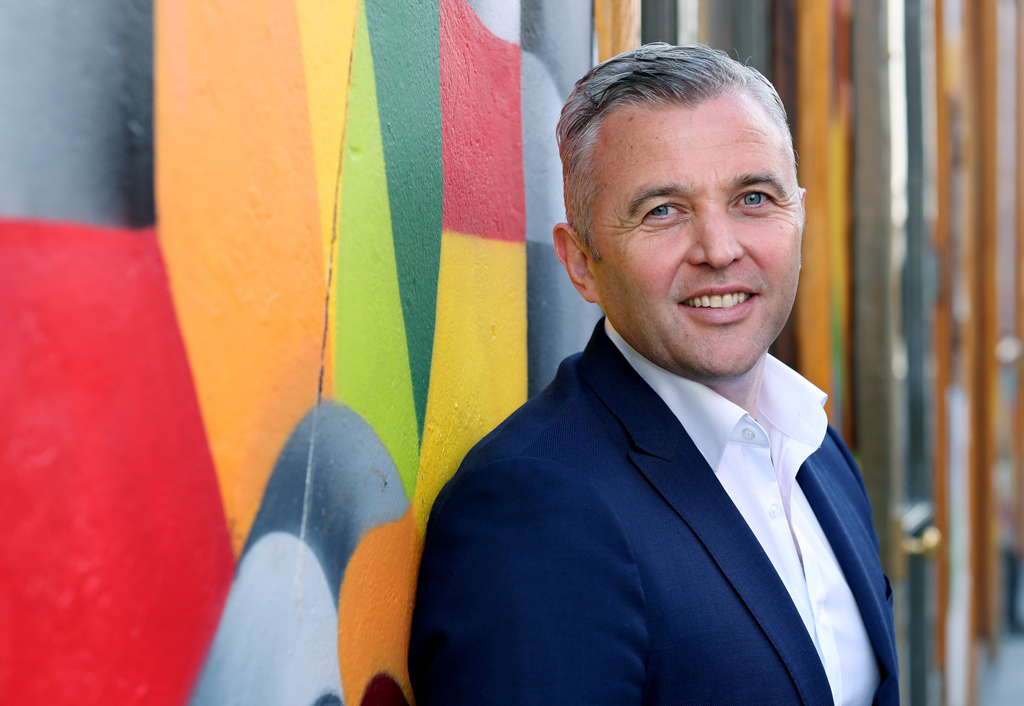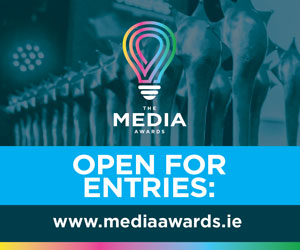
Irish advertisers are investing more of their budgets in social media – €50.8m in 2016 up 133% from €22.1m 2015- according to IPG Mediabrands which this week launched a new social media agency in Dublin called Mediabrands Society.
“However, it’s becoming an increasingly complex space for brands. Quite apart from the main platforms of Facebook, Instagram, Twitter, Snapchat, Google+, LinkedIn, You Tube and Pinterest all vying for spend, there’s the added pressure on brands to decide which Insight, Buying, Measurement and Targeting Tools work best for their particular needs,” says Eamon Fitzpatrick, managing director of IPG Mediabrands.
“And with so many other factors at play in this constantly evolving environment the choices As a socially led, fully integrated marketing agency, it’s a first of its kind for Ireland,” he adds.
Mediabrands Society is headed up by social media manager Lorna McGinn.
“Data and Insights are used to develop our recommended strategies for clients. And the backbone of that process and one of the biggest assets we have here at IPG are the results generated by WAVE, our global social media tracker. This material adds real depth to our understanding of what’s happening now and will allow us to drive new commercial opportunities for our clients,” says McGinn.
At the launch of Mediabrands Society, the agency unveiled the findings of Wave 9, a survey of over 52,000 people in 78 countries around the world. Wave 9: The Meaning of Moments, builds on ten years of global social tracking and was established in 2006, making it the largest and longest-running social media study of its kind.
The current edition of Wave 9 highlights the hundreds of moments in people’s lives when brands have the opportunity to be relevant, from family to professional, from the everyday to special occasions, according to McGinn.
“The research paints a clear message: as consumer attention spans shorten, it is vital that advertisers understand the emotional needs of their consumers in the real-life moments when brands suddenly become relevant. Otherwise, they will fail to make a meaningful connection. Other findings indicate that Consumer expectations of brands are at an all-time high with “Living in the moment” of instant access being key while respondents say that Social media is not as fun as it used to be,” she says.
This year’s study reports that globally, 85% of social media users actively spend time managing their social network profile (Vs 81% for Wave 8).
What also becomes apparent is that social media is no longer all about light-hearted fun. Compared to seven years ago, people are 40% less likely to see social networks as a place for fun and entertainment and are 30% more likely to see them as platforms on which to promote themselves – much in the same way that brands do.
With constant management of our online profiles, and less genuine connection with others, Wave 9 indicates that many of us now feel the need to be always ‘in the know’ on social and experience levels of ‘digital stress’ when feeling cut off. 49% worry about ‘missing out about something on my social network’, whilst 59% feel anxious when they don’t have access to the internet.
IRELAND OVERVIEW
By way of context, there are more than 3.6 million Irish on the Web and 87% of us accessing the internet daily. Mobile is king with 97% of citizens browsing the web on our smartphones while 55% of us use them for social media.
“As a nation, we’re also enthusiastic social media users. A January 2017 IPSOS report showed participation levels at Facebook 64%, Twitter 29%, LinkedIn 29%, Instagram 28%, Google+ 26% , Pinterest 19% and Tinder 6%,” she adds.
Some of the other key highlights from the Irish study found:
- 25% or 1 in 4 Irish Internet users say they check their device too often (vs 16% Globally)
- 50% say they think they’ll spend more time online via mobile than PC in future.
- 31% of Irish internet users trust bloggers /vloggers opinions on products and services (vs 44% Globally)
- 44% of Irish people say their social media profile is an accurate representation of who they are (vs 55.3% Globally)
- 62% of regular (at least 1+ a week) Irish Twitter users think the platform influences world opinion (vs 46% Globally)
- 75% of regular (at least 1+ a week) Snapchat users think it’s a fun platform to use (vs 49% Globally) and 67% of them say it gets talked about amongst their friends (vs 43% Globally)
- 62% of regular LinkedIn users believe it’s a positive place (vs 47% Globally)
- 28% of Irish shoppers admit to getting excited about a new package they just received vs just 19% of our more laid back global counterparts
- The Shopping Moment of researching online for a new product and the anticipation of it 28% Global vs 40% Ireland
A key insight from the study is that consumer expectations of brands are at an all-time high. According to this year’s report, 85% of consumers globally use instant messaging to stay in touch moment by moment with family and friends – and in turn they expect a response almost instantly. This urgency has led to success for brands that help consumers to live in the moment, such as the Uber car service, Deliveroo and JustEat food deliveries; instant access to content from Netflix and Spotify; and deliveries from Amazon Prime – with their rapid turn-around. Looking at the interactions consumers want with brands, Wave 9 shows that the desire for content worth sharing has grown by 15% globally, whilst desire for access to the latest news about products & developments has dropped by 13%.
The online space is hugely influential. In Ireland 46% of social media users agree that they are influenced by opinions shared online, increasing to 59% among 16-24 year olds. However, not every platform influences people in the same way. Facebook, for example, is primarily considered the main platform that gets talked about in consumers’ groups of friends (60% globally) – its influence clearly residing amongst existing friendship groups. Twitter, however, is best known as a platform that influences world opinion (45%).
“Social media is not a side line media to traditional and other digital, whilst it’s important to have a social strategy, this needs to be aligned and work hard for the overall strategy of media communications of any brand. At IPG Society we are already embedded in our clients’ overall objectives, giving us the best insights to our clients business to deliver results for our clients across all media touch points. Social can drive other media to work even harder and traditional can also drive social, ultimately it’s now at the heart and centre of our agency,” concludes Eamon Fitzpatrick.























